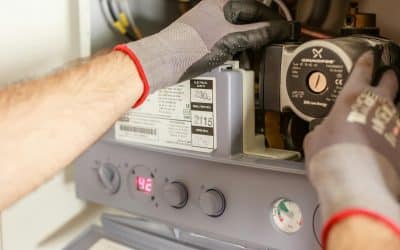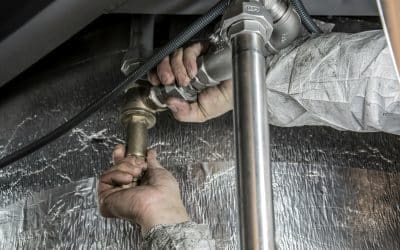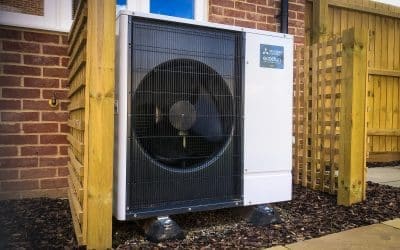From controlling your home or office temperature and humidity to helping you conserve energy – thermostats are your control center for heating, whether you’re looking at domestic or commercial spaces.
Be it air source heat pumps, ground source heat pumps, biomass boilers or any other type of central heating system you have, they can all be regulated by a thermostat for optimal heating efficiency.
Why Do I Need A Thermostat Buyer’s Guide?
While there are multiple types of thermostats available, it can get confusing which variant suits your heating system the best.
With the presence of different heating systems in homes and commercial spaces, selecting an appropriate thermostat brand is essential for saving up on bills and energy while leveraging your heating to the fullest.
With this in mind, at JL Phillips, our experts have put together a thermostats buyer’s guide through which you can make a decision about the right kind of thermostat for you.
Without further ado, let’s take a look!
Types Of Thermostats
There are two main reasons we have different types of thermostats- the type of equipment they control and the method of operation. With different requirements for each type of heating system, finding the right type that meets your needs will serve as a better choice for you during your thermostat set up.
With this in mind, here are the main types of thermostats –
1. Electric Thermostats
Thermostats essentially measure the temperature of your rooms and alter the heating or cooling of the building accordingly. When it comes to electrical thermostats, they rely on circuitry and other electrical elements to assess and adjust temperatures.
Since most electric thermostats are programmable, you can set the different temperatures you want your thermostat to run at for the entire day.
Moreover, through their computer-like features, you can program these thermostats to start your heating system before you wake up or go to bed. Additionally, they work best with oil, gas, electric, and hydronic systems.
2. Programmable Thermostats
In a programmable thermostat, homeowners or office workers can control all the functions of the system themselves; they’re that efficient and easy.
From setting your desired area’s temperature to selecting the right heating or cooling cycle, a programmable thermostat is easy to use and operate. Through this system, an individual can schedule specific temperature changes whenever they need.
Additionally, they improve your room’s overall efficiency and serve as a cost-effective solution for your home.
3. Smart Thermostats
With a smart thermostat, monitoring and adjusting the temperature of your room can be done through your smartphone or even your computer.
From changing the temperature in different rooms to optimising the heating and cooling settings, a smart thermostat can let you maintain your HVAC systems in the most efficient way possible.
However, these thermostats are more expensive compared to the other types and have a limited number of HVAC systems that they are compatible with.
4. Electromechanical Thermostats
Operating in a mechanical way, much like what their name suggests, electromechanical thermostats are another great alternative that you can consider for your home or office.
They rely on coiler metal or wire and other similar heat-sensing mechanical devices to assess the room’s temperature. However, they’re popularly used in older establishments and homes.
Mostly compatible with gas, electric, and oil HVAC systems, electromechanical thermostats are an older type of heating system that isn’t as high-tech as the other types.
Things To Keep In Mind Before Buying A Thermostat
With our thermostat buyer’s guide, you can select the right fit for your home. However, your thermostat needs to fit several prerequisites of the space they’re being added to, meaning you need to be aware of key areas before you go ahead with your thermostat purchase.
- Since not all thermostats are compatible with all HVAC systems, know your equipment and wiring well to select the best option for you
- From budget and energy efficiency to compatibility and ease of operation, each thermostat has different requirements; based on your heating needs, select the right type that ticks all the boxes
- Make sure you understand the installation process to decide whether you need aid with the thermostat or you can do the installation yourself
By keeping these points in mind, buying a thermostat is sure to become much easier for you.
Contact JL Phillips For Sustainable Heating Systems
Since a thermostat primarily works towards heat regulation and better efficiency, your heating system should be along the same lines. While trying to save on bills, heating systems should also be sustainable to reduce environmental damage.
That said, at JL Phillips, we provide a range of sustainable heating systems for commercial and residential spaces along with repair and maintenance services. These bespoke technologies improve not just your home, but also the environment.
To find out more, give us a call at 01636 642790 today!




